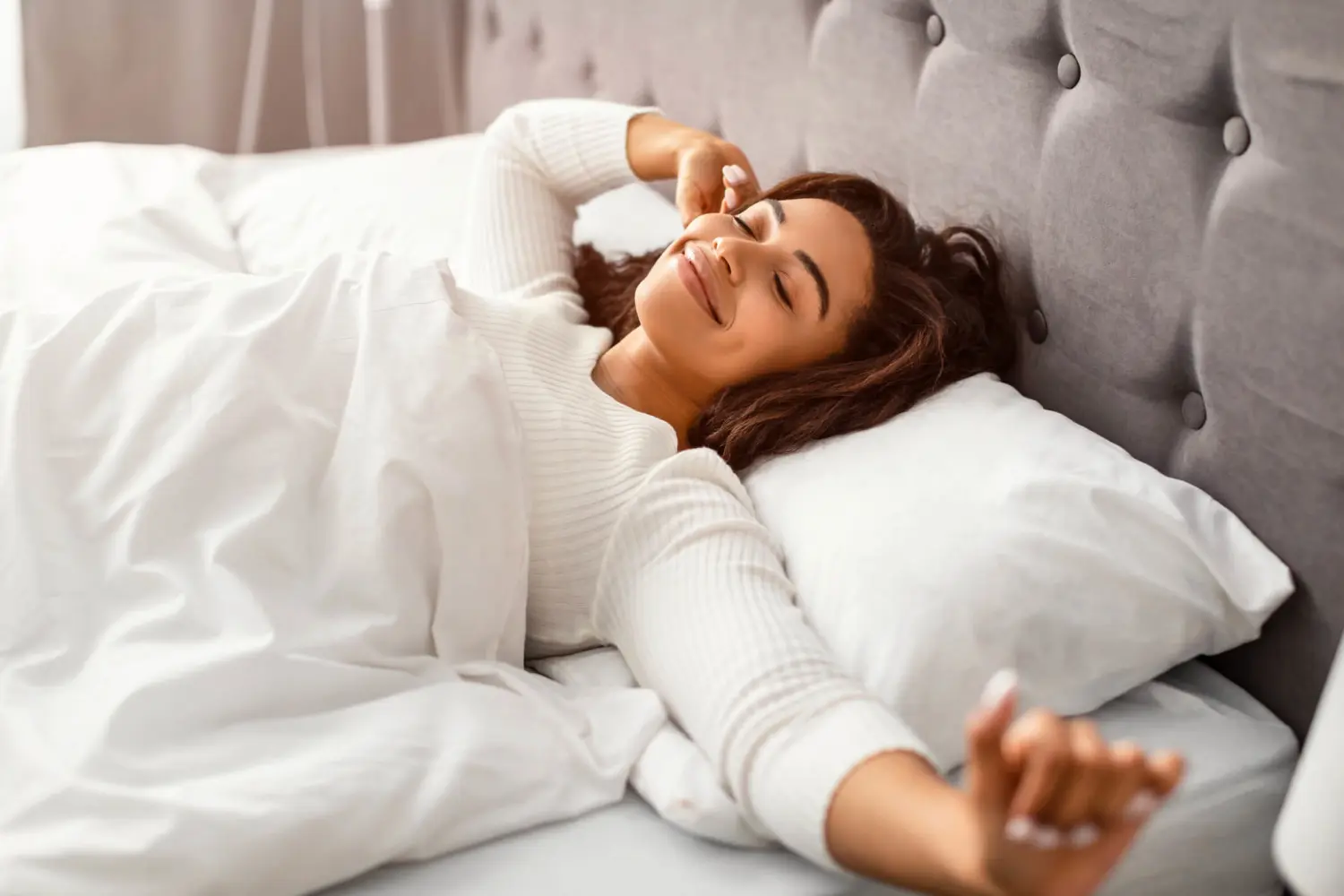Sleep is a vital function that keeps our bodies healthy, moods stable, and mind sharp. So how can you leverage a good night's sleep for maximum benefits? Here are a few strategies.
Make your bedroom more sleep-friendly: Make sure you're sleeping in a cool, dark, quiet place. Avoid artificial light from electronic devices, which can disrupt your sleep-wake cycle.
Be consistent with your sleep schedule: Going to bed at the same time each night is an easy way to balance out your sleep schedule and establish a routine that your circadian rhythm can match. Sleeping in and staying up late is tempting on the weekends, but the more regularly you go to bed at the same time, the more likely you'll keep insomnia at bay.
Avoid stimulants and depressants: Substances like nicotine, caffeine, and alcohol can disrupt sleep. If you're experiencing insomnia, think twice before you have that 4pm cup of coffee.
Get regular exercise: Exercising at least 5-6 hours before bed can help you fall and stay asleep more easily.
Avoid daytime naps: Save the sleep for bedtime.
Eat meals on a regular schedule: Late-night dinners can keep you awake at night. Sleep doctors recommend you eat dinner at similar times, well before bed, each day.
Practice stress management: Meditate, do yoga, read a book, or listen to soothing music. Follow a routine that helps you relax before bed.
Keep a sleep diary: The habits that are disrupting your sleep aren't always easy to notice. A sleep diary is a valuable tool for monitoring your sleep habits, documenting your sleep problems, and identifying patterns that may affect your sleep.
For more ideas on how to build healthy sleep habits, speak with one of the real, quality doctors on Sesame. Sesame can connect you directly with top-rated sleep specialists near you at affordable cash pay prices.
